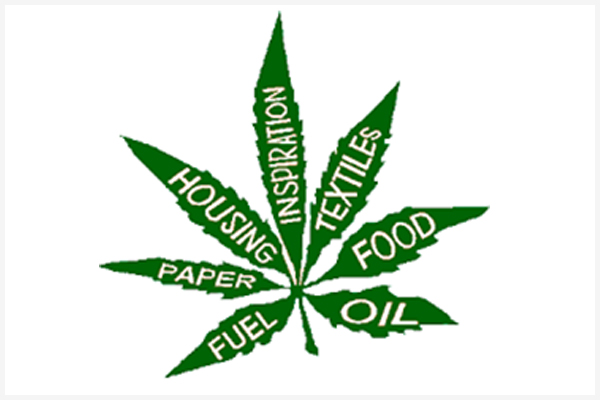


The hemp plant is a versatile resource harvested throughout history and is the strongest natural resource / fiber in the world known to have over 50000 different uses that can benefit both the economy and the environment. This plant surely is our inspiration to heal the planet and has been blessed by mother-nature to have all the properties one needs. Hemp is packed with all 9 amino acids which we need to get through food since our bodies don’t produce them naturally. Today, these are some of the most valuable uses of Hemp.

Hemp seed Oil which is the oil derived from pressed hemp seeds, contains the most essential fatty acids of any nut or seed oil. Hemp oil can help reduce fine lines and wrinkles as well as prevent signs of aging from developing and is also nourishes the hair. The linoleic acid and oleic acids found in hemp oil can't be produced by the body but can play a crucial role in skin health and anti-aging, so they're important nutrients to add to the diet. Hemp oil is popular as a remedy for a range of conditions including skin issues and stress and helps reduce inflammation in the body.
One of the most popular uses of hemp is food. Hemp is a superfood and contains high quantities of amino and fatty acids and protein, which makes it a great addition in multiple recipes. It also has a unique, nutty flavor and can be consumed raw, as an oil, or even powdered and blended with water to form teas and drinks. Hemp seed can also be ground into a nutritious flour that can be used to produce baked goods such as pasta, cookies, and breads.
Hemp has been used to make various forms of clothing for thousands of years. It’s proven that "1 acre of hemp will produce as much fiber as 2 to 3 acres of cotton." Hemp fiber is stronger and softer than cotton, lasts twice as long as cotton, and will not mildew. Hemp cloth’s durable fibers breathe very well and help make clothing last longer which is why it’s commonly used to make durable clothing items such as shirts, T-shirts, jeans, athletic wear and other high-fashion attire.
The hemp plant is mostly composed of a sturdy, wood-like core known as the hull. Hemp can be used to produce fiberboard that is stronger and lighter than wood. Hemp’s strong, durable fibers make it a valuable resource for producing more ecological materials such as hemp-infused concrete that are highly resistant to wear, water, or weather-related damage. Substituting hemp fiberboard for timber would further reduce the need to cut down our forests to prevent further global warming.
The quality of hemp paper is superior to tree-based paper. Hemp paper will last hundreds of years without degrading, can be recycled many more times than tree-based paper, and requires less toxic chemicals in the manufacturing process than does paper made from trees. It takes years for trees to grow until they can be harvested for paper or wood, but hemp is ready for harvesting only 120 days after it is planted. Harvesting hemp rather than trees would also eliminate erosion due to logging, thereby reducing topsoil loss and water pollution caused by soil runoff.
Fuel can be a by-product of hemp cultivation. One fuel would be biodiesel because of the oils in the seeds and stalk of the hemp, another would be biofuel from the fibrous stalks. Hemp seed oil provides a non-toxic alternative to petroleum fuel, commonly known as biodiesel. Due to hemp’s ability to grow in a variety of different conditions and locations, this clean burning fuel is expected to become a substantial source of environmentally-friendly diesel in the future.